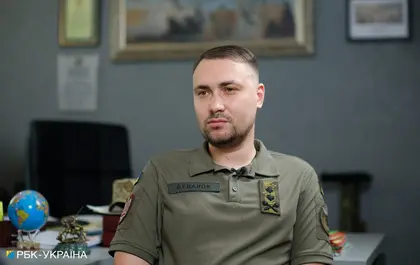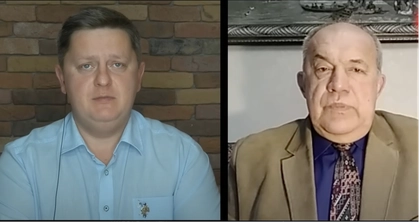Some have put the July 1 missile attacks in Odesa down to revenge for Ukraine’s liberation of Snake Island, an attempt to intimidate the population, or an inducement for a Ukrainian surrender.
But Ukraine’s Head of the Main Intelligence Directorate at the Ministry of Defense, Kyrylo Budanov, does not believe in “conspiracy theories.”
JOIN US ON TELEGRAM
Follow our coverage of the war on the @Kyivpost_official.
In a July 4 interview with RBC-Ukraine, Budanov puts the latest strikes down to a new head of the so-called “special military operation” in Ukraine.
- Look at the most up-to-date Ukraine news that came out today.
- Look at the most up-to-date Ukraine news that came out today.
- Ukraine War Casualties
“Commander of the Air Force Serhiy Surovikin knows how to fight with bombers and missiles – that’s what he does,” says Budanov, who also believes that Russia knows full well where that their missiles will land on civilian targets.
“Russia is simply a monster and the threat will go on for a long time,” he concedes.
But while logic does not seemingly come into Russia’s playbook, Budanov is confident that Vladimir Putin’s finger will not stray too close to the red button.
Should we feel reassured?
“Russia clearly understands that using nuclear weapons will simply accelerate the disintegration of Russia,” he points out.
Concern remains around the occupied Zaporizhzhia Nuclear Power Plant, with the International Atomic Energy Agency (IAEA) not having the access they need. For Budanov, the evidence points to nuclear blackmail, not only of Ukraine but of the entire civilized world. “It’s not clear what is currently going on at the station,” he admits.

Holiday Spirit Thrives Among Ukrainians Despite War, Study Finds
Meanwhile in Russia, there is little sign of public protests on the streets, despite the barrage of sanctions waged by the west. Budanov is of the view that the Russian people mostly support Putin’s actions, with the long-term effects of propaganda affirming their ugly grip.
Perhaps there is light at the end of the tunnel? Budanov suggests that “the economic elite suffered quite a lot from this war” and “will wait for the right moment for change.”
On the territory of Belarus, there is also a reason to be optimistic – at least for now, with Budanov commenting that only “a meager amount” of Russian forces are on its territory and that “as soon as [the threat] appears, we will know about it.”
Concerning Ukraine’s eastern Donbas regions, Budanov believes the question is no longer whether Ukraine can keep those territories, but “when we will liberate them.” He adds that August will see certain actions set into motion from the Ukrainian side, then a deceleration of hostilities closer to winter.
But while the pace of the Russian attack has slowed and Putin has already admitted that forces taking Luhansk should rest, a successful Ukraine counter-offensive will ultimately depend on the quantity and quality of supplied weapons.
“The Ukrainian Army will continue to fight until the complete liberation of Ukrainian territory,” says Budanov, confidently. Sadly, the amount of weaponry reaching Ukraine from key allies such as the U.S. and U.K. remains insufficient.
For Budanov, the complete liberation of Russian forces from the Donbas is all a question of time.
You can also highlight the text and press Ctrl + Enter






